The New York State Assembly has some legislation in committee right now that concerns Honey Bees. The bill is A 7568 and you can read it at: https://nysenate.gov/legislation/bills/2021/A7568 .
There has been some misinformation sent out about this bill from other sources urging action and alleging things in this bill that simply are not there. In 2019, several of us attended concerned beekeepers from Long Island attended “listening sessions” with the Commissioner of Agriculture and Market’s representative, concerning crafting this legislation. They took our comments, and the comments of beekeepers throughout the state into consideration when this bill was written.
A couple of years ago, we discussed a similar bill at a club meeting and took a vote on how many were in favor of support and it was overwhelmingly positive. But, the bill didn’t pass. Now, it is being resubmitted with changes that beekeepers suggested.
Legislators and Assemblymen will take a tally of the input they get, for and against the bill and go with the most comments.
So, I urge you to look the bill over yourself and then decide which side you fall on. You can then email or call your legislators and Assemblymembers (find them and their contact info at: https://openstates.org/ny/legislators/ ) and express your view before the bill comes up for vote sometime in the next 2 weeks. You can also contact Assemblywoman Donna Lupardo, who is putting the bill forward, at LupardoD@nyassembly.gov , or call at 518-455-5431. Please do this sooner, rather than later, as it is possible although unlikely, that it could come up for vote as soon as Tuesday!
Some of the specific changes made from beekeeper comments were:
- Positively states that there are NO fees associated with registration.
- Contact information for the beekeeper, but, not exact location of hives will be used for registration. (the bill only asks for county the bees are kept in).
- Information flow to beekeepers using email addresses to assist in early notification of disease outbreaks in their area.
- Advance notice of planned inspection of colonies.
- Gives beekeepers a voice by counting our numbers and making us visible to lawmakers.
- Changes specifics on buildings used for preparation of hive products for sale to provide a possible tax break for beekeepers.
Below is a fact sheet prepared by the New York State Dept. of Agriculture and Markets. Please read this and the bill itself before making your decision, and then let you legislator and Assemblyman know your views! – The LIBC Board
Pollinator Departmental Fact Sheet A.7568Over the past few years, the NYS Department of Agriculture and Markets (AGM), in cooperation with the NYS Department of Environmental Conservation (DEC) and the Apiary Industry Advisory Committee (AIAC), has done a great deal to address pollinator protection. The presence of parasites, infections, and diseases, such as American Foulbrood, are on the rise and habitat fragmentation and environmental factors are all contributing to the decline of honeybees. In 2016, AGM and DEC jointly issued a Pollinator Protection Plan, with updates in 2018 and 2020, to address the issue. The Pollinator Protection Plan noted that to “bolster research efforts and curb disease in the managed pollinator population in NYS, it is critical to have information regarding the location and condition of managed apiaries.” For example, in the last three years, there has been an increase of American Foul Brood disease found, rising from 66 cases in 2018 to 140 cases in 2020. The Department attempts to reach out to beekeepers whose yards are in close proximity to diseased yards, but efforts are hampered by the lack of up-to-date information in the Department’s database. The risk from bee disease to beekeepers and the agricultural community who rely on pollination services is real. Commercial and sideliner beekeepers generally have from 50 to 14,000 colonies versus the average hobby beekeeper who maintains on average five or less.
Bee Health Departmental (A.7568) LupardoThe purpose of the bill is to modernize Article 15 of the Agriculture and Markets Law (AML) Bee Diseases to reflect modern bee husbandry practices and create a Cooperative Honey Bee Health Improvement Program.
The bill:
- Provides for the Apiary Industry Advisory Committee and designates the commissioner as the chairperson of the committee.
- Requires the commissioner to provide beekeepers with advance notice of apiary inspections.
- Establishes a cooperative honeybee health improvement program, which includes the registration of apiaries (noting number of colonies, county where located, and contact information for person responsible).
- Provides for an annual inspection of apiaries selling nucleus colonies.
- Amends the Real Property Tax Law (RPTL) to clarify the farm buildings property tax exemption for the bee industry.
- Amends AML section 301 (9) to include more bee products in the definition of “gross sales” for the Agricultural Value Assessment program.No Registration Fees
- The bill clearly outlines that: “There shall be no fee or other registration cost for enrollment in the cooperative honeybee health improvement program.” Transparent Process
- Commissioner Richard Ball held three listening sessions in November/December 2018 in the Capital Region, Central/Western New York region and the Hudson Valley region to discuss how to modernize the state’s apiary inspection efforts and how the department can improve apiary inspections. The issue of registration was discussed at all sessions.
- In 2018, Commissioner Ball attended numerous bee club meetings across the state to get input and guidance in drafting a bee health departmental bill. The Department received a great deal of feedback, which included the following suggestions:
- The State’s apiary laws need to be updated as they, for the most part, date back to 1925. It was recognized that much has changed since then.
- The State needs to do more to help protect honeybees.
- The concept of a bee health department, with a registration, was discussed at several Apiary Industry Advisory Committee meetings. It was on the AIAC agenda on May 30, 2018. The 2019 legislative proposal was reviewed with the AIAC line by line on September 30, 2019, and the Department requested suggested edits in writing and with reasoning before the next legislative session. None were received.
- In Spring 2019, Commissioner Ball: o Spoke at the Assembly Agriculture Committee meeting and mentioned to the members that the Department is planning on putting in a Bee Health Bill.
- Met with the Agriculture Chairs to brief them on the Departmental.
- Some minor edits were made to the proposal, including one to address confidentiality concerns of some beekeepers. It now includes an exemption under the public officer’s law, which is related to proprietary information.
- In 2020, both the Assembly and Senate informed the Department that they were interested in taking up the bill possibly with the amendments after the budget process ended. However, the COVID-19 pandemic impacted the 2020 legislative session.


